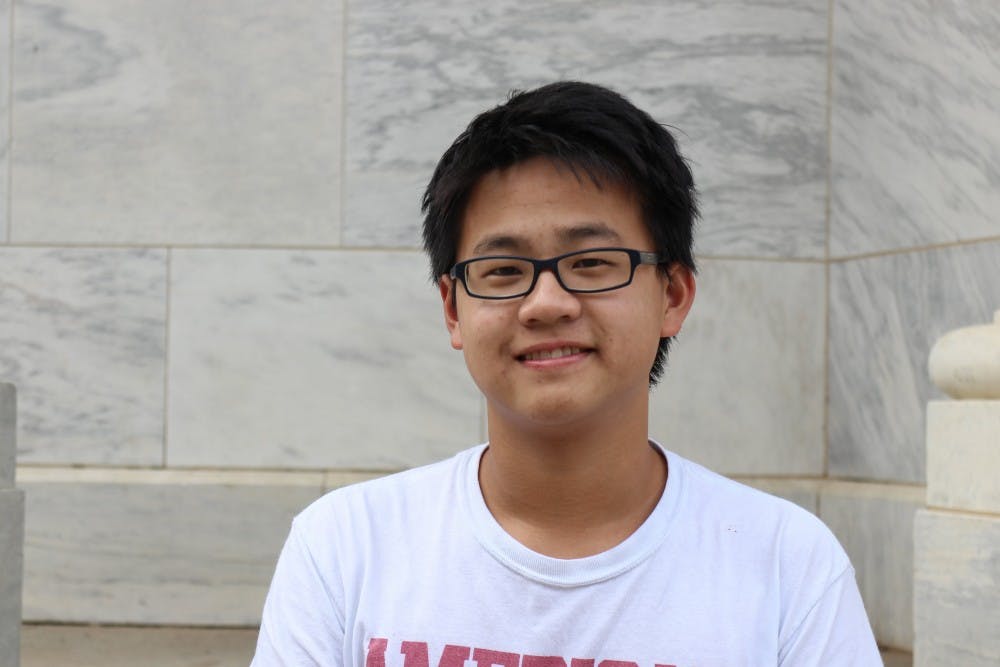On Jan. 22, The Eagle reported that eight anti-open borders flyers had been posted in two campus locations. The right-wing posters are inscribed with a twist on phrases used in recent sexual harassment movements, including #NoMeansNo and #MyBodyMyChoice. The posters hung up around campus carried the phrase "No Means No" and the hashtag "#MyBordersMyChoice," as well as links to The Daily Stormer, an American white supremacist and neo-Nazi website. Also depicted was a cartoon of an outstretched hand nefariously reaching toward an avatar of the United States as a browbeaten woman wrapping her arms around herself. The movement is partially coordinated and fairly widespread. It has garnered support from far-right figures such as cartoonist Ben Garrison, white supremacist and conspiracy theorist Jack Posobiec and conservative public figure Tara McCarthy.
There are two different coalitions in this #MyBordersMyChoice movement, according to far-right sites such as 4Chan, 8Chan and Voat. The first—and much smaller—coalition genuinely subscribes to this particular anti-immigration ideology, fueled by events such as the Women’s March, support for DACA, a piece of legislation for Dreamers, and the late-2017 acquittal of an undocumented immigrant in the murder case of Kate Steinle. This photo from Reddit shows a right-wing individual hanging up a poster in memory of Steinle.
There is a website purposed with organizing this movement, revived after an older version that, according to a 4Chan comment thread, was deleted by Wix. Variations of the poster also float around the movement, and these variations are the most explicit indicators of a split in ideology. The official #MyBordersMyChoice account wrote on Voat, “This is about spreading a peaceful message of respecting the consent of citizens who own the public land in their countries and have the right to decide who enters their property.”
The other faction is made up of people who are looking to offend for amusement and may not necessarily agree with everything their movement stands for. The ideology of this second faction is far more tame and geared much more closely toward provocation. We saw a lot of this during the 2016 presidential campaign, whereby many people—including myself sometimes—vocally scorned political correctness and far-left sensitivity. Of course, I never lost sight of my own values and beliefs, but many others did. Conservatives loudly decried left-wingers and their safe spaces as close-minded and ideologically monogamous without really understanding the doctrine they were reciprocating. In the #MyBordersMyChoice movement, participants were told by campaign organizers to target “feminism & SJW [social justice warrior] related areas,” “women's & gender studies departments,” and “office doors of feminist profs.” It’s evident that the individuals within this second faction are provocateurs, not bigots.
And then there’s the reaction that universities and the supposed “SJWs” had in response to the publication of these posters. The University of Virginia encouraged students who saw them around campus to call the police. AU went so far as to call the posters “vandalism” and released security footage of them being put up. I find both of these reactions to be an almost comically ridiculous overreaction. It’s important to realize that there are two types of far-right protesters, which means that the way most university campuses will respond to this event—turning to condemnations of racism and hate—is likely going be ineffective and therefore turn more people from provocateurs to far-right protesters.
In spite of all this, we should do nothing. I’m not saying that college administrations shouldn’t condemn bigotry outright. Frankly, it’s more important for students to feel safe than it is to extend diplomacy to a movement with bigoted intentions. In order for the students living on campus to feel safe, the University’s administration must condemn racism and hate in all its forms, regardless of how effective doing so will be in fighting this despicable, right-wing ideology. Therefore, we must endure #MyBordersMyChoice and other movements like it because our perfectly reasonable reactions to them serve as fuel. There may be an end in sight, but it requires our maturity, our patience and our ability to go high when they go low.
Mark Lu is a freshman in the School of Public Affairs and a staff columnist for the Eagle.





